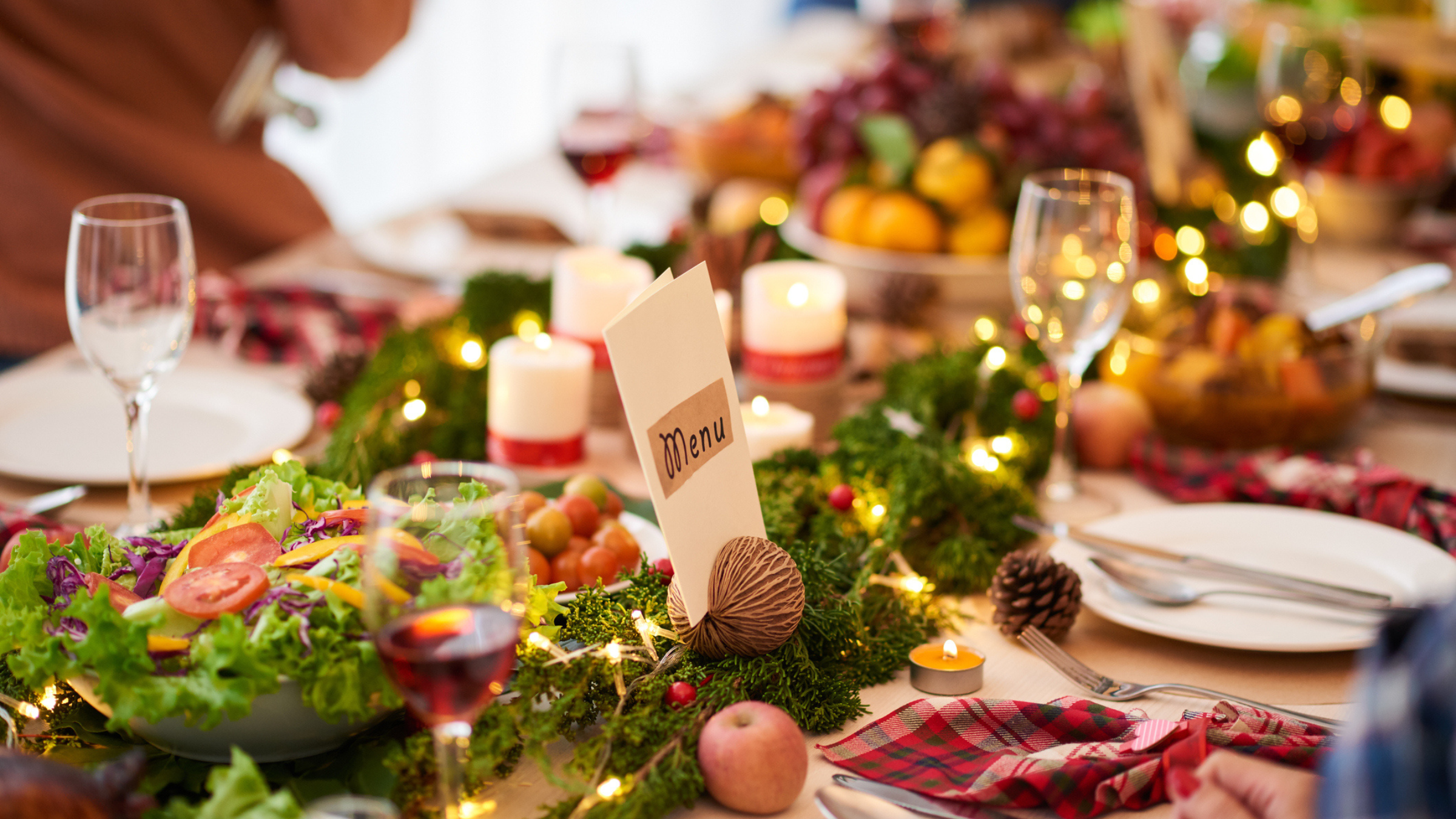It’s common knowledge to mind your p’s and q’s at the holiday dinner table. You likely know to keep your elbows off the table, hold back on wine—and avoid taboo topics. But the truth is, we have an obligation to have a discourse about social issues, humanitarian concerns, and even politics.
ICK! I just made you itch, didn’t I?
There’s no need to squirm in your seat – we have a guide through even the most delicate subject matters. A good place to start a conversation surrounding these tricky topics is by using (SDGs). The SDGs are the world’s global issues organized into one list—and it’s a doozy. It includes 17 problems the international body is set on mobilizing by 2030, including poverty, hunger, health, education, gender equality, sustainable cities, and climate action. (Talk about a hefty homework load to get through by 2030.)
, an associate professor at the University of Waterloo, says it’s our responsibility to have open dialogues about these issues. “Talking about the climate crisis, the humanitarian crisis, or any political crisis is important because some of our actions and behaviors on a day-to-day basis can impact these issues,” she says.
If we don’t talk about them, how are we supposed to mobilize around anything?
How to start a difficult conversation at the dinner table
As you settle in for a holiday meal this year, I’m not suggesting you throw yourself into a heated debate over figgy pudding. There’s no reason to ruin the holidays with hostile accusations and arguments. Instead, open up the dialogue with actions—rather than words.
Boluk offers an example touching on the topic of climate action. This year, you may choose zero-waste gift wrap or eco-friendly bags for holiday presents. By engaging in these practices, you can open a wider dialogue about the response to climate change. Maybe a cousin comments on the design of the sustainable wrapping paper and asks where he can purchase it for next year. This comment gently opens the door to discussing climate change, rather than forcing someone into it. “In terms of engaging in a dialogue, I encourage people to be empathetic,” Boluk says. “There’s a lot going on in the world in terms of what we’re faced to reconcile with. I think we need to be empathetic if someone does wrap their gift, for example, with regular wrapping paper – maybe now isn’t the time to critique that but simply lead by example. Maybe they’ll be inspired to try it next year.”
Methods to a productive discussion
If you’re discussing one of these hot topics at the dinner table, you likely have a range of opinions sitting with you. You have family members who are open to all kinds of dialogue—and those who’d rather not participate. Both are okay.
If someone expresses a hostile reaction to the conversation, Boluk suggests continuing the discourse with those who are interested after the meal.
“Choosing the time to talk about it and knowing who is willing to talk is key,” Boluk says. “But there is an art to carrying people along and sometimes someone’s positionality does change when you draw upon examples and different perspectives.”
Be open to different opinions. Instead of approaching the conversation with the idea that you’re the only one who’s right, Boluk suggests coalescing around the idea of collective action and problem-solving.
Why you should talk to teens about tough topics
A poll conducted by shows that young people are 50 percent more likely than older generations to believe the world is becoming a better place. The same poll also reports the impatience young people feel for action on climate change and other global concerns.
However, many young people don’t feel their voices are taken seriously.
“This research I conducted shows that a lot of the crisis we’re talking about falls on the shoulders of young people,” Boluk says. “It’s really unfair that we don’t listen to their voices, because they’re really cleaning up the mess we made.”
Maybe this year you take a trip to chat with those relegated to the kid’s table. Regardless of whether they’re 13 or 24 (When do you get to sit at the adult table?), their perspectives on these topics are important and valuable.
Be Realistic. We’re Not Solving World Peace over the Holiday Ham
The holidays remind us to wish for peace on earth and good will. While even open minds and thoughtful conversations won’t create monumental changes overnight, if these open discussions happen at dinner tables around the world, we’ll be doing our duty to bring awareness to these topics.
“We have to engage in hard conversations in order for us to grow and our communities to grow,” Boluk says. “We can skirt around safe topics, but we’re not going to move the needle at all if we don’t engage in these types of conversations.”


